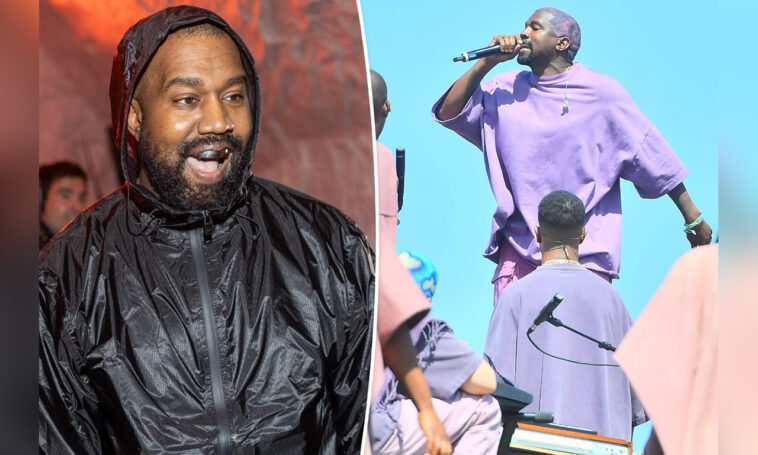Kanye West’s Sunday Service has recently been stripped of its charitable status after failing to meet crucial financial reporting requirements for three consecutive years. The Internal Revenue Service (IRS) revoked the tax-exempt status of the gospel group on May 15, 2024, citing the organization’s failure to file the necessary Form 990-series return, a standard requirement for 501(c)(3) organizations.
Sunday Service, founded by Kanye West in 2019, initially enjoyed the benefits of being recognized as a tax-exempt entity under the 501(c)(3) category. This classification is typically reserved for organizations engaged in religious, educational, charitable, or similar activities aimed at public good. However, the recent IRS action underscores the importance of compliance with federal tax regulations, even for high-profile groups like West’s Sunday Service.
As of August 12, the revocation of Sunday Service’s tax-exempt status remains in effect. The news channal break this story first, which has since raised questions about the management and future of the gospel choir group. Although many others reached out to representatives for Kanye West for a comment, there has been no immediate response. Kanye West said
“I spent every dime that I have for marketing from Yeezy on Sunday Service. Every dollar I had,” he explained. “I spent $50 million last year on Sunday Service if you add up the operas, if you add up the flights. It was 120 people going to Jamaica.”
Kanye West, now 47, launched Sunday Service with a vision of merging gospel music with his unique style and creativity. The group quickly gained attention for their weekly performances, which often featured West himself alongside the choir. Their debut public performance was a memorable event at Coachella during Easter in 2019. The group’s influence and reach expanded when they collaborated with Pastor Joel Osteen, who invited West to perform at Lakewood Church in Houston in November 2019. The event was highly anticipated, with tickets initially offered for free. However, the high demand led to resale prices soaring up to $500.
Despite the success and popularity of Sunday Service, the group has not been without controversy. In 2020, Kanye West faced legal challenges from several members of Sunday Service and associated staff. They filed class action lawsuits against the rapper, alleging mistreatment and violations of California labor laws. The lawsuits included claims of underpayment, denial of meal and restroom breaks, and other labor violations. More than 500 performers and around 300 crew members were involved in the legal actions against West, highlighting significant discontent among those who worked on the project.
One of the prominent cases involved a hairstylist named Raina Leon, who claimed she had to wait 120 days to receive a $550 paycheck for work completed in November 2019. Another Sunday Service performer, Michael Pearson, alleged that he was paid a flat rate of $250 per day, regardless of the hours worked, and was denied basic workplace rights such as meal and restroom breaks. Pearson further claimed that performers were often required to stand all day, with inadequate provisions such as seating or transportation.
These legal issues culminated in a settlement reported in June 2024. Kanye West agreed to pay $1.35 million to settle with the hundreds of performers and employees involved in the lawsuits. However, this settlement amount was significantly lower than the over $10.5 million initially sought in damages.
The revocation of Sunday Service’s tax-exempt status and the legal challenges faced by West and his team have cast a shadow over what was once a celebrated and innovative project. The situation highlights the complexities and responsibilities that come with managing such an endeavor, especially when it intersects with labor laws and federal tax regulations. As of now, it remains to be seen how these developments will impact the future of Sunday Service and Kanye West’s broader initiatives.



